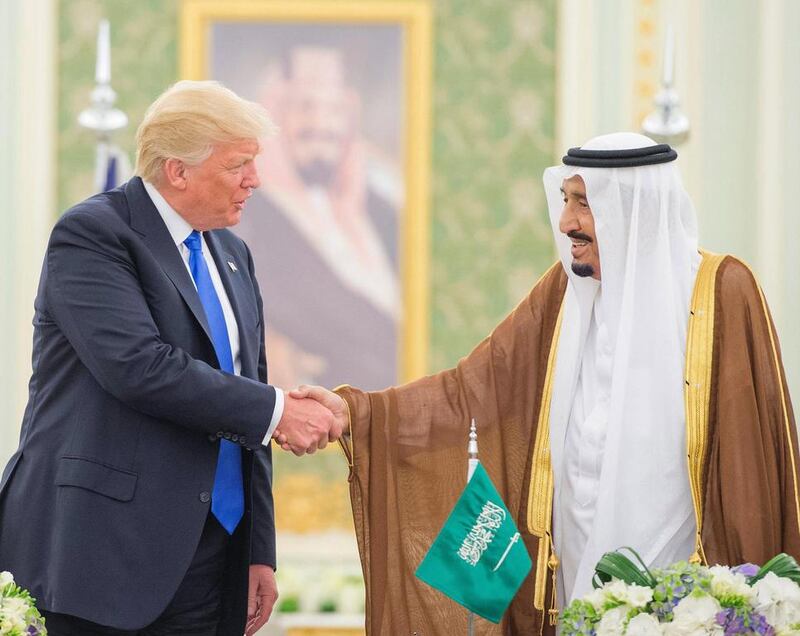For weeks this region eagerly awaited the arrival of Donald Trump on his first foreign visit as president of the United States. As soon as Air Force One touched down at King Khalid International Airport in Riyadh on Saturday morning, it was clear that the visit was going to live up to expectations and that it would foster a new era in Arabian Gulf-US partnership and cooperation. After a brief reception at the royal terminal in which Saudi Arabia’s King Salman personally welcomed Mr Trump to our region, several agreements and deals were signed between the two leaders.
The extent of the deals demonstrates the gravity with which Saudi Arabia is handling the restart in its relations with the US. According to Saudi foreign minister Adel Al Jubeir, the total amount of the deals signed on Saturday exceeds $380 billion (Dh1.4 trillion). This includes the single largest arms deal in American history with a value of roughly $110 billion (Dh404bn) for specialised US military equipment and services that help ensure the safety of the Arabian Peninsula.
These deals will create jobs for Americans while ensuring that Saudi Arabia receives advanced military hardware at a time of regional instability and Iranian interference. Saudi leaders also announced investment into American infrastructure projects, which if carried out will be a boost for the American economy and by extension, global commerce.
With the economics of the visit taken care of on the first day, Mr Trump turned his focus to a landmark address to the Muslim world. He also took the chance to meet Arab leaders in Riyadh, including Egypt’s Abdel Fattah El Sisi and the leaders of Qatar and Bahrain. The UAE delegation in attendance was led by Sheikh Mohammed bin Zayed, Crown Prince of Abu Dhabi and Deputy Supreme Commander of the Armed Forces.
There will be much to discuss with those leaders, including the crises in Yemen, Syria and Iraq and of course the defeat of ISIL. But one thing is abundantly clear. A new chapter in the Arabian Gulf’s relationship with the United States has begun. With deep goodwill and mutual appreciation, we have a strong partner in Washington that will help us restore the region to stability and advance our economic potential. Such a powerful alliance is critical during these days of instability. Looked at from Riyadh, it certainly appears that the United States is back.





